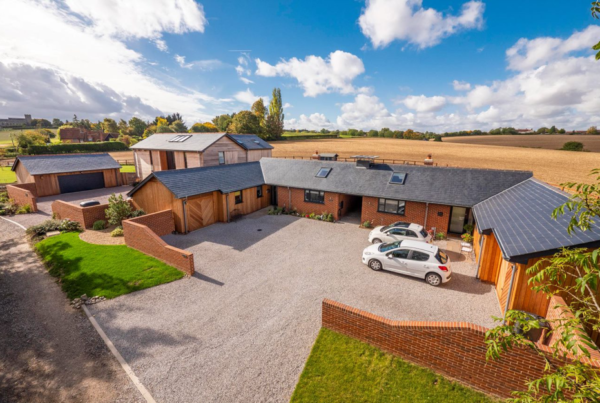Are you looking to buy a home and get on the property ladder? Or alternatively, are you a property developer looking to purchase a building in order to renovate and sell on? You might be immediately considering to get a mortgage in order to buy a property, but did you know that there are other options available to you too? We take a look at some of the most popular alternatives to traditional mortgages.
Cash buyers
A cash buyer refers to someone who has the cash available upfront in order to purchase a property without needing to get a mortgage. It is possible that this can be done on an individual basis, or by a firm. Choosing a cash buyer in order to finance your mortgage can have a number of benefits, including helping to make the house sale process quicker, and it is also possible that it can help prevent a chain-forming beyond the purchaser.
Cash buyers are commonly homeowners who have already sold their home or simply have a lot of disposable money available and do not need a mortgage.
If you decide to use a cash buyer instead of getting a mortgage, you will typically be given a cash offer after a formal valuation of the chosen property. If you accept the offer, it is possible to complete the sale then within a timeframe that best suits your needs.
Development finance
Another option available to you is development finance when purchasing property, especially if you are a property developer. This type of finance is primarily aimed at those who intend to renovate, build up or extend a new property from a plot of land.
One of the main reasons why development finance best suits buyers who intend to develop a property is that the loan values are broken down into construction costs and for also purchasing the land too.
All funds are provided to you in stages during the construction project after a valuation from a surveyor. As a result, this type of property finance can help you to budget carefully during the project, maintain positive cash flow and ultimately avoid overspending.
Bridging loans
Bridging loans are aimed at those who are looking to complete properties on a fairly strict deadline. This includes buyers who are intending to complete on an apartment or building within a 2-to-4 week period.
One of the main reasons that bridging loans are so popular as an alternative form of property finance is that the loan can be sorted out far quicker than is standard with a traditional mortgage, which can take months to go through.
Types of buyers that commonly use bridging loans to buy property including homeowners intend to move but have yet to sell their existing property, those looking to raise finance for business purposes or investments, and homebuyers who have bought a property at auction. Your security is at risk so if you do not keep up with repayments, your property is at risk of repossession from the lender.
Help-to-Buy equity loan
Help to Buy equity loans are also a viable alternative to standard mortgages. This government loan is available in England and Wales and helps people to put down a deposit for a house at a quicker rate, and it is low in interest.

Mortgages are not the only form of funding available to purchase property.
In terms of eligibility criteria, the house you intend to buy will need to be a new build registered with the Help to Buy Scheme. The purchase price can be up to £600,000 in England or £300,000 in Wales, and it can be the only property that you own.
It is also worth keeping in mind that you will need a 5% deposit in the first place, with the Help to Buy loan then lending to you an additional 20% (or 40% in London) and additional funding will be needed through other forms of finance.
This is designed to help first time buyers or those looking for assistance when getting on the property ladder.
Shared Ownership
In the UK, it is also possible for you to buy a home via the shared ownership scheme, and it is also possible to do this with a housing association or council property.
The scheme enables you to buy between 25% and 75% share of a leasehold property, and then you pay off the remainder as rent. To be able to apply for shared ownership, you need to earn less than £80,000 a year, and fall into one of the following categories:
- You are a first-time buyer
- You are an existing shared owner
- You used to own a home, but it is no longer possible for you to purchase one as you can’t afford to.









